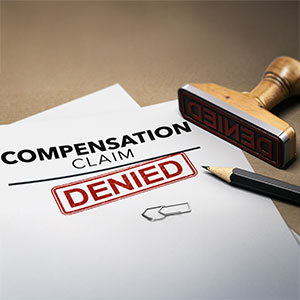Federal Employee Health Benefit Plan Pre-Emption Of State Law
Personal InjuryOn April 18, 2017, the US Supreme Court reached a decision in Coventry Health Care v. Nevils and found that Federal Employee Health Benefit Plans (FEHBA) pre-empt state law on subrogation and reimbursement rights following a personal injury settlement or jury verdict.
How Does Subrogation Work?
After you receive money in settlement of an injury claim or after a jury trial, the injured person must generally reimburse a health insurance carrier from the money recovered for the amounts actually spent by the health plan. The reason for this is because virtually every health insurance policy has some sort of contractual right to recoup its expenses if your injury was caused (in whole or in part) by the negligence of a third party. This is frequently called “subrogation” or “reimbursement.”
What Is The Impact Of The Nevils Decision?
The ruling in Coventry Health Care of Missouri, Inc. v. Nevils establishes that any state “collateral source rule” that requires a health insurance company to reduce or negotiate its subrogation interest is not legally enforceable. This means that whatever language is in the contract will prevail. Most health insurance policies already include language that the health plan has a “100% first right of recovery” (or similar language) after a third party injury.
The fact that you received a personal injury settlement means that the health insurance companies benefits become a loan (rather than insurance) that you have to repay. The Nevils decision also essentially means that health insurance companies can put anything they want in their contracts and that language will be enforced. Therefore, if the health insurance carrier has a “100% first right of recovery,” then they get their money back before you do and before your attorney fees and costs.
The effect of this ruling makes Federal Employee Health Benefit plans the same as self-funded ERISA plans with regard to subrogation. After the ruling in US Airways v. McCutchen, anyone working for a large company that finds its own health plan (as opposed to buying insurance for employees) has to fully repay their employer’s health plan from any settlement or judgment even to the exclusion of attorney fees and costs.
If you have a $100,000 settlement but your health insurance company wants $100,000 back, then you don’t get anything and neither does your attorney in exchange for doing all of the work (and advancing the costs necessary) to get the settlement.
The true purpose of these decisions is to become judicial tort reform and discourage people from bringing claims in the first place. By taking away the financial incentive for attorneys to bring claims, they hope to eliminate a lot of lawsuits and save a lot of money.
The trouble with all of this when a person becomes legitimately injured and has 6 or 7 figures of medical expenses, then the health insurance company gets all of their money back while the injured person (who is not able to work because of a serious injury) gets no money to sustain themselves in the absence of work. The unfortunate effect of this policy is that more and more injured people go onto government benefits, such as SSDI and SSI. Once those people are collecting benefits, it is hard for them to find work even after they fully recover from their injuries.
Talk To A Personal Injury Attorney About Your Case
If you have been injured as a result of a third party’s negligence and you have to repay money to health insurance plan, then you should contact a Lakeland personal injury attorney to discuss your case. A personal injury attorney can help you obtain a copy of your health plan and can interpret the contract language for you. If appropriate and necessary, we may file a lawsuit on your behalf. Schedule a free case review today.


